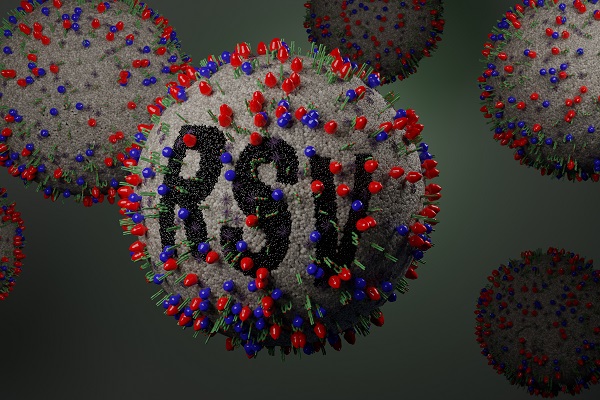Helping the littlest patients stay healthy during RSV season: A comprehensive guide

RSV, or respiratory syncytial virus, can be another illness to worry about during the cold and flu season. This is especially true for the parents of infants.
Aimee Kwon, MD, is a pediatric hospitalist medical director at Salem Health Hospitals and Clinics. She shared what families need to know to stay safe and healthy this year.
What is RSV and how do you prevent it?
“RSV is a common virus that infects the upper respiratory tract causing typical viral and cold symptoms,” Kwon said. “It’s a contagious virus that is spread by respiratory droplets, specifically nasal secretions.”
Kwon said for most people, RSV looks like a mild cold. However, infants under the age of one and children with chronic lung disease have a higher risk of hospitalization.
The medical director said the good news is, in 2023, a new kind of antibody was approved by the Food and Drug Administration. This therapy, called Beyfortus, can quickly provide antibodies to fight the virus.
“This antibody provides infants and toddlers, who are most at risk for serious disease, a heightened level of protection,” Kwon said. “The vaccine is available to all infants younger than 12 months old in their first year of life during RSV season and to high-risk children in their second season between 12 and 24 months old.”
The American Academy of Pediatrics recommends Beyfortus for all infants during their first fall/winter season.
“The vaccine will not prevent infants or children from contracting RSV, but it reduces the progression to a more severe course,” Kwon said. “The vaccine can stop the virus from entering the lungs, preventing hospitalization and greatly decreasing the chance a littlest patient ends up in a pediatric intensive care unit.”
Kwon also noted pregnant women can receive an RSV vaccine called Abrysvo between 32 and 36 weeks. This passes immunity onto their infants, negating the need for Beyfortus.
What are the RSV symptoms?
The pediatric doctor said, as far as symptoms go, a runny nose, cough and congestion are the most common.
“Babies are nose breathers, so when their nose is congested, they have a lot of difficulty feeding, either by breast or bottle, and can easily become dehydrated,” Kwon said. This means a baby might have less than half of their normal number or wet diapers or go a long time between feedings.
Most symptoms start mild and peak five to seven days after the first symptom. Kwon said that’s when hospitalization is the most common.
When is RSV season?
The medical director said a typical RSV season runs from October to April. The most severe RSV season in recent history was November 2022 to March 2023 when hospitals faced the “ tripledemic” of RSV, COVID-19 and flu.
Kwon said hospitalizations dropped dramatically in the fall of 2023, thanks in part to Beyfortus.
“As a hospital and medical community, we are unsure of the severity of RSV this season. To date, we have seen few positive tests, but it is early in the season,” she said. “Everyone in pediatrics is hopeful the continued use of Beyfortus and Abrysvo will result in low hospitalization numbers this year as well.”
Unique RSV care at Salem Hospital
When looking for pediatric care in Oregon, Salem Hospital is unique.
“Most hospitals across the state have not adopted in-hospital distribution of the monoclonal antibody and are reliant on outpatient pediatric clinics for administration,” Kwon said. But in Marion and Polk counties, a lot of family practice clinics don’t have Beyfortus available — that’s where Salem Hospital comes in. Providers offer Beyfortus to all newborns.
And, if the unthinkable happens, Salem Hospital is ready to help. If a child with RSV requires hospitalization, the Salem Hospital pediatric unit offers nutritional support, IV fluids, supplemental oxygen and nasal suctioning. Kwon notes Salem Health providers are ready and equipped for the RSV season ahead.